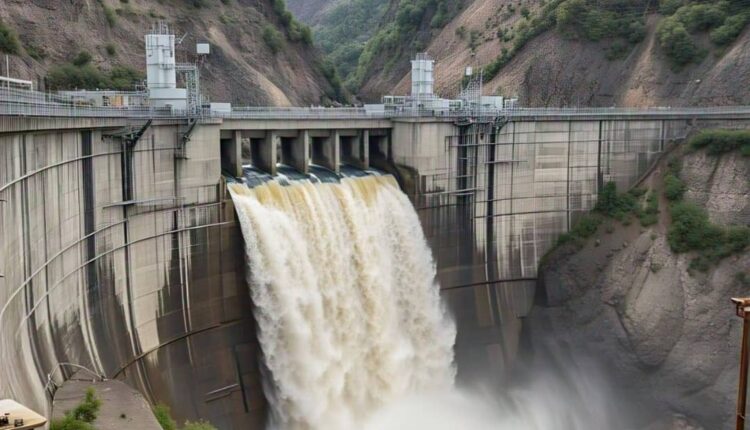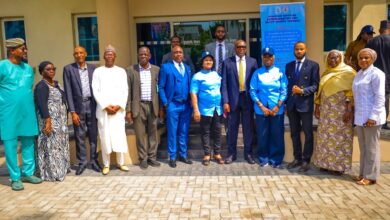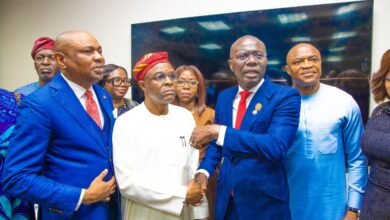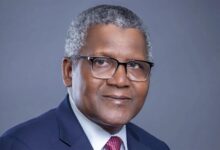AUPCTRE, NUEE, PSI, Others Demand Reinstatement Of Disengaged Electricity, LWC Employees Over Privatisation Plans
Overhaul National Grid To Protect Electricity Infrastructure, Probe Failed Water Contracts Nationwide, Govts Told

By Edu Abade
Representatives of the Amalgamated Union of Public Corporations Civil Service Technical and Recreational Services Employees (AUPCTRE) and the National Union of Electricity Employees (NUEE) and their international collaborators, DGB Bildungs Werk and the Public Service International (PSI) have demanded reinstatement of workers unjustly disengaged to pave way for privatization in the electricity and water sectors.
They are also asking for payment of all emoluments due to them and unconditional reinstatement of the 391 employees of the Lagos Water Corporation (LWC) disengaged in April 2024 to enable the state government to actualize its privatization agenda.
The groups, which made the call in their communiqué at the end of a two-day workshop with the theme: Promoting Transparency and Decent Work in Supply Chains In Electricity, Water and Waste Services in Sub-Sahara Africa, equally demanded a probe of all water contracts awarded at the national and state levels and a blacklisting of identified contractors who have failed to deliver or diverted the funds.
The two-day event, which held in Abuja from November 18 to November 19, November 2024 and supported by DGB Bildungs Werk and PSI, featured presentations from experts with the aim of enabling members of the two unions on how to synergize their campaigns, actively and efficiently campaign for workers’ rights.
The event also presented the opportunity for participants to take a critical look at the electricity sector privatization in Nigeria, the observed plans by Federal and State Governments to privatize the water sector, and come up with the way forward.
National President of AUPCTRE, Comrade Benjamin Anthony and Acting General Secretary of NUEE, Comrade Igwebike Dominic, who endorsed the communiqué, noted that privatizing public utilities in the electricity, water and waste services sectors have failed globally and was no longer sustainable.
In the welcome address, PSI-DGB National Coordinator, Abiodun Bakare, said several engagements with the rank-and-file in different states across the country revealed a lot of challenges faced by the union members, hence the convening aimed to gauge the pulse of members on government’s privatisation plans and how best to collectively address the issues.
After extensive deliberations and voting, participants observed that the transfer of ownership of the National Electric Power Authority (NEPA) and later Power Holding Company of Nigeria (PHCN) to private entities which the Federal Government said would improve efficiency, attract investments and enhance the overall electricity supply in Nigeria has failed.
Lamenting the constant increase in electricity tariffs and decrease in power supply resulting to darkness in most homes, they said the unending collapse of the National grid portends danger to the National economy and increases insecurity which affects businesses in Nigeria.
“We also observed the clandestine attempts to privatize water in Nigeria through various MOUs and Agreements at National and State levels are extremely worrisome and entrenchment of casualization and disengagement of workers in government establishments already privatized and systematic introduction of divisive policies to weaken the unity of workers and their opposition to privatization.
“There is growing abdication of responsibility by state governments who are now adopting Public-Private-Partnerships (PPPs) and poor waste management across the country,” the communiqué added.
The participants, therefore, resolved that there should be total reversal of the electricity sector privatization, review of the unjust tariff on electricity and the oppressive bands structure introduced by the current administration in the most recent tariff hike.
They demanded an overhaul and upgrade of the National grid and protection of electricity infrastructure across the country from vandals, who work in collusion with unscrupulous agents of the state intent on milking the country through contracts for repair works.
They also demanded total stoppage to the planned privatization of the Transmission Company of Nigeria (TCN), halt to the planned privatization of water through the so-called PPPs and embrace of Public-Public-Partnerships, which have proven to be effective in addressing challenges in the public sector globally, among others.










